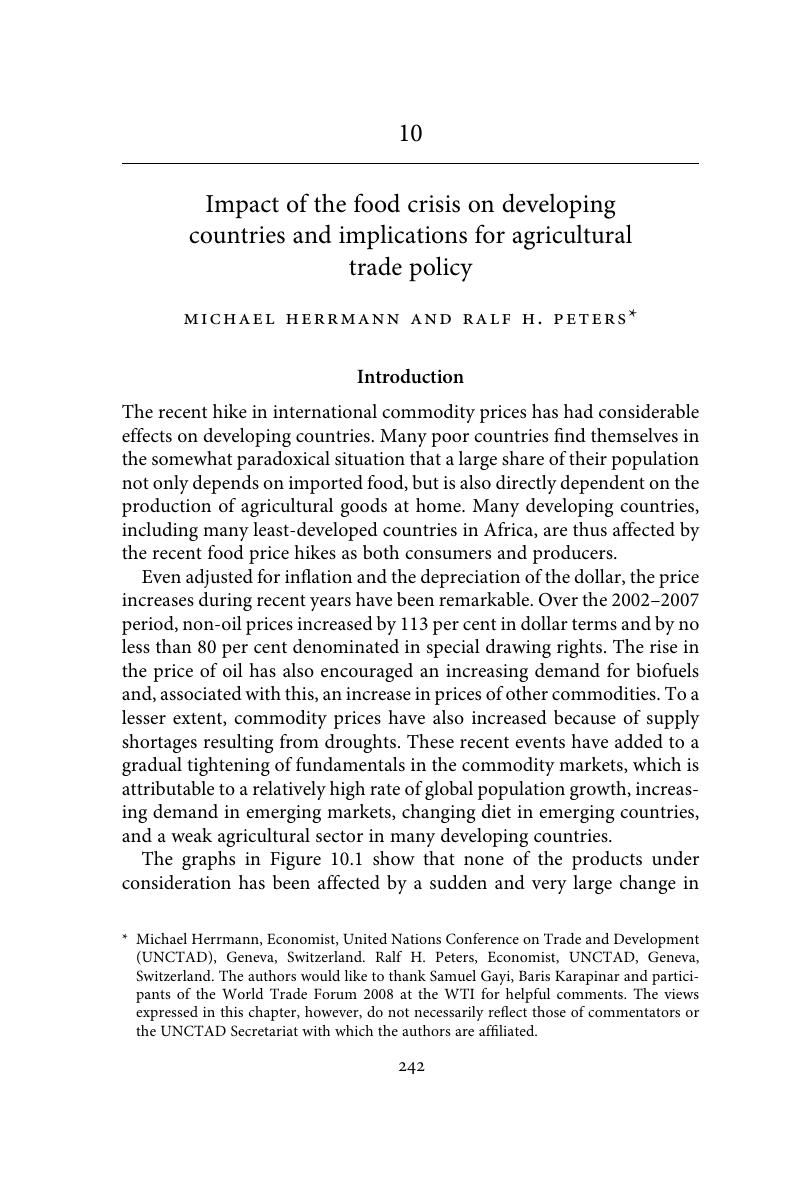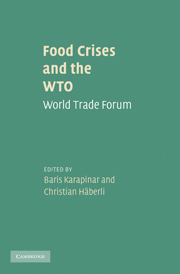Book contents
- Frontmatter
- Contents
- List of contributors
- List of figures
- List of tables
- List of abbreviations
- Preface
- 1 Introduction: food crises and the WTO
- PART 1 Economics of the food crisis
- PART 2 Trade and law: WTO and beyond
- 7 Agricultural policies: past, present and prospective under Doha
- 8 The food crisis and the role of the EC's Common Agricultural Policy
- 9 WTO disciplines and economic dimensions of the 2008 US Farm Bill
- 10 Impact of the food crisis on developing countries and implications for agricultural trade policy
- 11 Responses by the international trade and aid community to food security
- 12 Food security and WTO rules
- 13 Conclusions and policy recommendations
- Index
- References
10 - Impact of the food crisis on developing countries and implications for agricultural trade policy
from PART 2 - Trade and law: WTO and beyond
Published online by Cambridge University Press: 12 May 2010
- Frontmatter
- Contents
- List of contributors
- List of figures
- List of tables
- List of abbreviations
- Preface
- 1 Introduction: food crises and the WTO
- PART 1 Economics of the food crisis
- PART 2 Trade and law: WTO and beyond
- 7 Agricultural policies: past, present and prospective under Doha
- 8 The food crisis and the role of the EC's Common Agricultural Policy
- 9 WTO disciplines and economic dimensions of the 2008 US Farm Bill
- 10 Impact of the food crisis on developing countries and implications for agricultural trade policy
- 11 Responses by the international trade and aid community to food security
- 12 Food security and WTO rules
- 13 Conclusions and policy recommendations
- Index
- References
Summary

- Type
- Chapter
- Information
- Food Crises and the WTOWorld Trade Forum, pp. 242 - 272Publisher: Cambridge University PressPrint publication year: 2010



